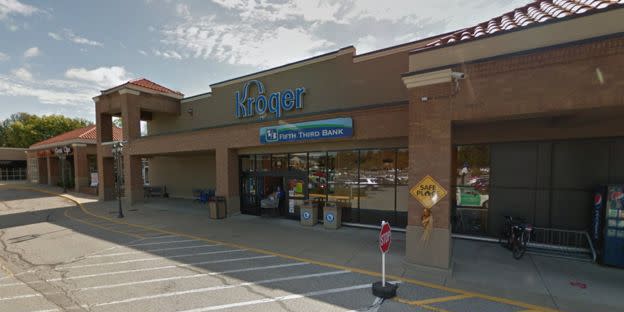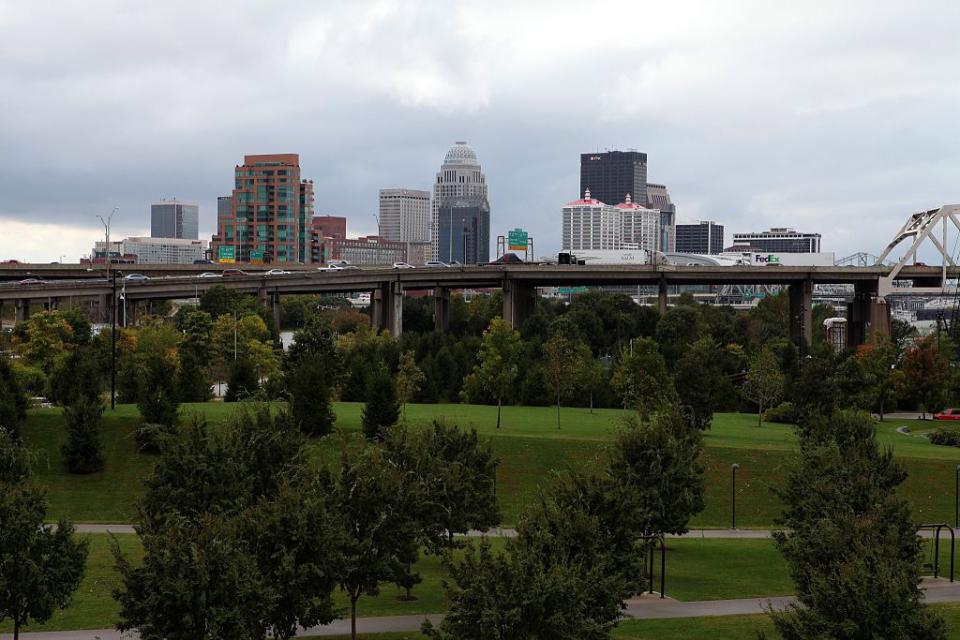When the Tragedy Comes to Your Home

Allow me to misquote Mark Twain: “When the world ends, I want to be in Kentucky, because things happen there 20 years after they happen everywhere else.”
It didn’t take twenty years, but Kentucky has finally felt the relatively new yet already familiar brand of tragedy we’ve seen ricocheting across the nation in cities like Charleston, SC and Charlottesville, VA. This brand of tragedy has a certain flavor to it. It taste like the words, “lone,” “gunman,” and “white.” This brand of tragedy’s flavor indeed marked the end of a world that had always ascribed “things like this” happen in “places like that” and never in Louisville, Kentucky.
On October 24th, 2018, an armed Louisvillian entered a Kroger grocery store in an area of the city known as Jeffersontown. After a short amount of time in the store, the shooter-described by witnesses as wearing a highlight yellow long-sleeved shirt with a matching skull cap-crept up behind Maurice E. Stallard (69) and fired. As Stallard lay lifeless on the ground from a close range gunshot wound to the head, the shooter fired several additional shots, sending Stallard’s grandson running for cover.
After killing Stallard, the now-murder exited the crime scene where he extended the reach of his rampage to touch Vickie Lee Jones (67). He killed her in a similar fashion, by adorning her body with extra bullets, as if to say, “two victims will have to do.”
Maurice Stallard. Vickie Lee Jones. Both grandparents. Human beings. Gunned down and killed in Louisville, KY. The shooter: A man full of hate, bigotry & racism. Hate, bigotry & racism won’t go quietly. We can’t afford to elect more people who encourage & embody the three. pic.twitter.com/7ZoeANQWpf
- Be A King (@BerniceKing) October 25, 2018
The shooter was then confronted by another armed Louisvillian in the parking lot, who had his weapon drawn. The bad guy in this western was wearing bright neon yellow, hyperbolizing his cowardice, and said to his would-be captor: “Don’t shoot me, I won’t shoot you. Whites don’t kill whites.” Apparently these are the magic words that will set you free after murdering two people in cold blood in broad daylight.
The shooter got into his car and drove away, only to be stopped and safely taken into custody a few blocks from the crime scene. He is Gregory Alan Bush (51), a white male with all the “lone gunman” symptoms of a violent past, mental instability, and run-ins with law enforcement. The flavor is so familiar. Bush settled on the grocery store after failing to get into a locked Baptist church an hour before.
The news stories about this incident tend to leave out the perspectives of Louisville residents. But I am one, and I am also an American pan-African black man, and a poet: I want to show you how the world can be ending all around us, but Kentucky is always the last state to feel the effects.
I grew up in the most populous county in Kentucky, named after the flavor father himself, Thomas Jefferson. There are just over 370,000 black people in the state of Kentucky, and 44.2% of that demographic is found in Louisville's’ Jefferson County. In 2015, the city ranked fourth in a Huffington Post study of most segregated cities in America. The stage for the ending of the world was set in motion a long time ago.
“[The shooting took place in] the suburbs. There is no suburban retreat,” Louisville Urban League president Sadiqua Reynolds told me. “There’s no place any of us can go and be safe if we don’t deal with the hate that we’re growing.”
Indeed the hate that Louisville has been growing is being tilled in separate and unequal parts of the city. Jeffersontown is a section of the garden high in nutrient-rich resources, fresh produce, and this particular brand of tragedy.

“We take pride in our resilient community,” the Jeffersontown mayor said. “We will not let this incident define us.” In fact, it’s the isolationism created by the economic flight of the 60’s that has defined JTown and the other areas created to get away from those pesky redlined neighborhoods. Therefore it comes as no surprise that a racially charged murder would occur in a predominantly white area.
“He wouldn’t have tried that at the Kroger in Portland!” Jeffersontown resident Robert Shoulders told me, referencing the contrast of the JTown store and the Portland location. The area known as Portland in Louisville is only a few minutes from downtown; predominantly white and low-income, it whispers of a once-booming industry, but now sits silent like the old factories, ready for gentrification.
The grocery store is a sacred place, because all must eat and feed their family. That makes it a particularly terrible setting to commit such a horrific crime. Paulesha Gunn is the grandniece of Vickie Jones, one of the gunman’s victims, and she put it to me this way: “He shot my aunt Vickie for NO REASON… All she was doing was buying groceries to go and make my GranGran some food!”
This brand of tragedy is the end of many people’s worlds; hiding in Kentucky will not delay it any longer.
Lance G. Newman II or Mr. SpreadLove wears many hats that include founder and Director of SpreadLovEnterprise, playwright, author, actor, teacher, visual and spoken word artist, student and father. From Louisville, Kentucky as a base, his efforts are to spread love across the nation with artistic expression.
('You Might Also Like',)
